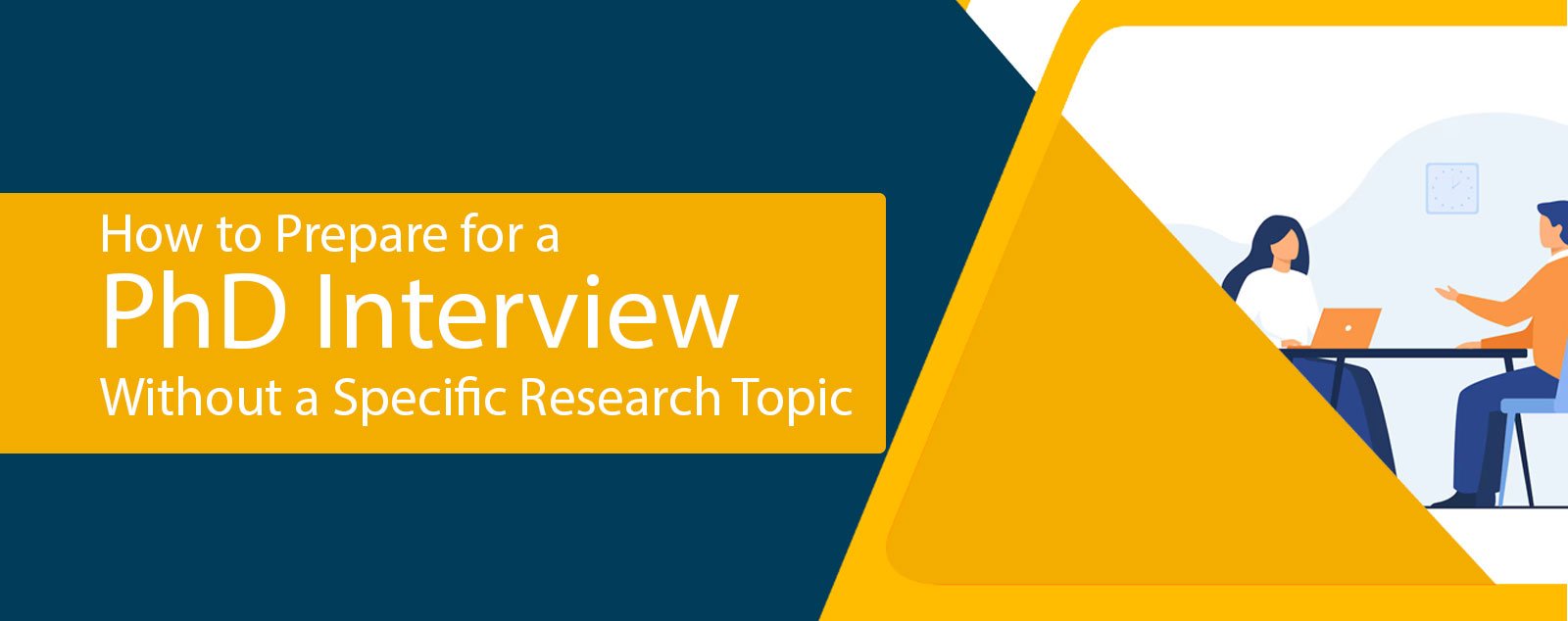यूजीसी से दिल्ली के आठ विश्वविद्यालय फर्जी घोषित, फिर भी...
Read More
How to Prepare for a PhD Interview Without a Specific Research Topic
A PhD interview can be daunting, especially if you haven’t settled on a specific research topic. However, not having a defined research question doesn’t mean you’re unprepared. Many PhD candidates enter their programs with broad interests that refine over time. The key to a successful interview is demonstrating your potential as a researcher, your understanding of the field, and your ability to engage in academic discourse. Here’s how to prepare effectively.
Table of Content:
- Understand the Program and Faculty Interests
Clarify Your General Research Interests
Be Ready to Discuss Your Academic Background
Demonstrate Your Research Potential
Prepare Thoughtful Questions
Be Open to Guidance and Suggestions
- Showcase Soft Skills and Motivation
- Practice Common Interview Questions
Conclusion
Consult with our Counselor
Understand the Program and Faculty Interests
Before your interview, thoroughly research the PhD program, faculty members, and recent research trends. Look at:
The program’s focus areas and specializations.
Faculty profiles, their research publications, and current projects.
The structure of the PhD program (coursework, research components, and requirements).
By understanding the faculty’s interests, you can align your responses with their work and show that you are a good fit for the program.
Clarify Your General Research Interests
Even if you don’t have a specific research question, you should be able to articulate broad areas of interest. Reflect on:
- What excites you about the field?
- Are there particular methodologies or theories you find compelling?
- Any previous academic work, projects, or coursework that influenced your interests?
Formulating a few key areas of interest will help you discuss potential research directions with the interviewers.
Be Ready to Discuss Your Academic Background
Expect questions about your academic journey and how it has prepared you for a PhD. Prepare to discuss:
- Your undergraduate or master’s thesis (if applicable) and how it relates to your research interests.
- Any relevant coursework, independent studies, or internships.
- Skills you’ve developed, such as data analysis, programming, writing, or laboratory techniques.
Demonstrate Your Research Potential
Even without a clear topic, show that you have the skills and mindset to succeed in research. Highlight:
- Your critical thinking and problem-solving skills.
- Your ability to engage with academic literature and identify research gaps.
- Any research assistantships, projects, or presentations you’ve been involved in.
Prepare Thoughtful Questions
Asking insightful questions signals your enthusiasm and helps you determine if the program is the right fit. Consider asking about:
- Potential research directions within the department.
- Faculty members’ expectations of PhD students.
- Collaboration opportunities within and outside the university.
- Available funding, resources, and professional development support.
Be Open to Guidance and Suggestions
Interviewers understand that PhD topics evolve. They may suggest potential directions based on your interests and background. Be receptive and engage in discussion rather than feeling pressured to have a final topic decided.
Showcase Soft Skills and Motivation
PhD programs seek students who are motivated, adaptable, and resilient. Demonstrate your:
- Passion for learning and discovery.
- Ability to work independently and in teams.
- Commitment to long-term research endeavors.
Practice Common Interview Questions
While every interview is unique, practicing responses to common questions will boost your confidence. Some examples include:
- Why do you want to pursue a PhD?
- What research areas interest you?
- How have your past experiences prepared you for doctoral research?
- What challenges do you anticipate in a PhD program, and how will you handle them?
- Why do you want to join this particular university/program?
Conclusion
Lacking a specific research topic doesn’t have to be a disadvantage. Instead, focus on demonstrating your readiness for doctoral research, intellectual curiosity, and alignment with the program’s strengths. By preparing strategically and engaging in meaningful discussions, you can leave a strong impression and increase your chances of securing a PhD position.
UGC Releases Important Notice For Students, Warns Against Fake Universities Awarding Degrees
UGC Releases Important Notice For Students, Warns Against Fake Universities...
Read MoreNAAC: What about accreditation of accreditors?
NAAC: What about accreditation of accreditors? The NAAC is in...
Read MoreHow to Prepare for a PhD Interview Without a Specific Research Topic?
How to Prepare for a PhD Interview Without a Specific...
Read More


